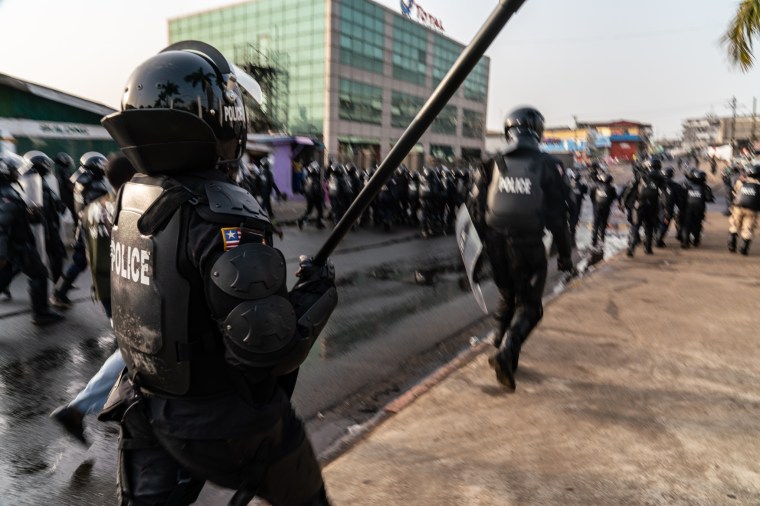Abuja, September 18, 2020 – Liberian authorities should credibly investigate the attack on journalist Amos Omaska Jallah and ensure those responsible are held to account, the Committee to Protect Journalists said today.
On September 13, in Latia, a town in Liberia’s western Cape Mount county, a group of at least 30 men attacked Jallah, a senior reporter with the privately owned The News newspaper, while he was covering a voter registration program, the journalist told CPJ by messaging app.
Jallah said he filmed the group of men arrive in the town, where they tried to register to vote ahead of Liberia’s December 8 senatorial elections, and clashed with locals who attempted to stop them from registering illegally. Jallah said the group then turned on him, and men used sticks to beat him on various parts of his body, shoved him to the ground, and then let him leave the scene and go to a nearby hospital.
Jallah received a deep cut on his head and sprained his left arm during the attack, and has returned daily to a hospital for treatment, he said. He added that the men also took his phone and money, and did not return them.
“Journalists in Liberia must be free to cover elections and other matters of public interest without being violently attacked,” said Angela Quintal, CPJ’s Africa program coordinator, in New York. “Those responsible for the attack on journalist Amos Omaska Jallah should be held accountable and the phone and money they took from him should be returned.”
Prince Sneh Parker, the administrative and finance manager of The News, told CPJ via messaging app that the paper reported the matter to the Press Union of Liberia and the police, who said they would investigate the attack.
Jallah said he believed the attackers worked for Victor Watson, a politician in Liberia’s ruling Congress for Democratic Change party, because they took their weapons from a van painted with the colors of that party, which had also escorted them into the town.
Watson, who spoke to CPJ over the phone, confirmed that a clash had occurred, but identified the attackers as “just voters who wanted to exercise their civic rights,” and accused Jallah of trying to stop people from voting. Watson added that he believed the conflict had been resolved and that he intended to contact Liberia’s justice minister about the incident.
Jallah told CPJ that he believes police should thoroughly investigate the case, and added that Watson had agreed to replace his stolen cellphone.
In a phone interview with CPJ, Moses Carter, a spokesperson for Liberia’s national police, accused Jallah of compromising the investigation by accepting Watson’s offer of a new phone, and also said that Jallah had failed to attend a meeting at the police station. Jallah said that he did attend that meeting, and accused the police of political bias in deference the Congress for Democratic Change party.
